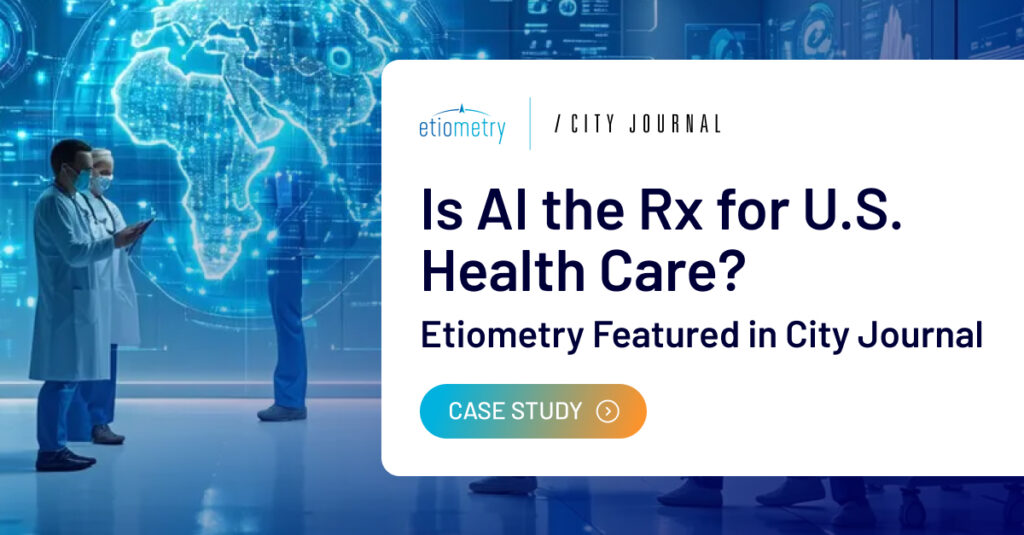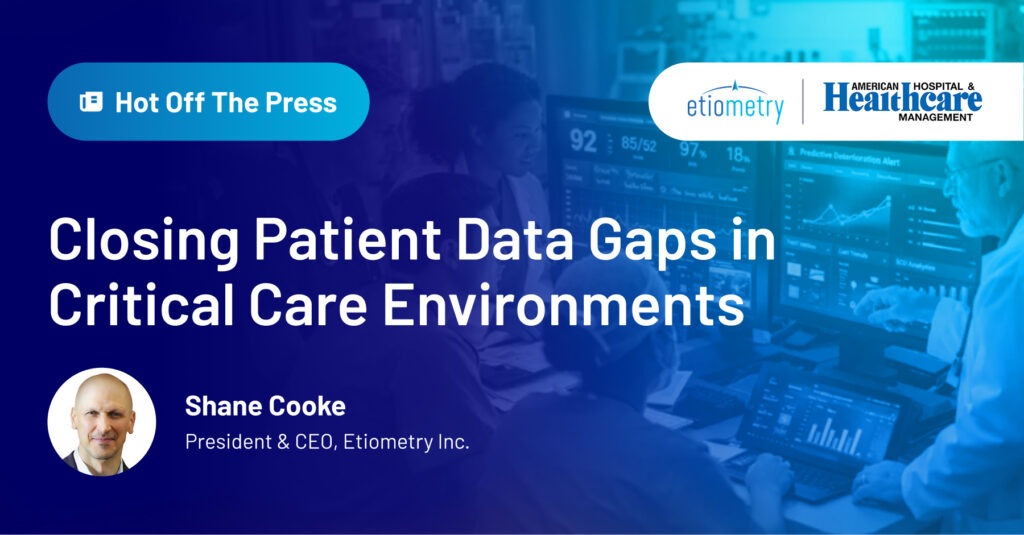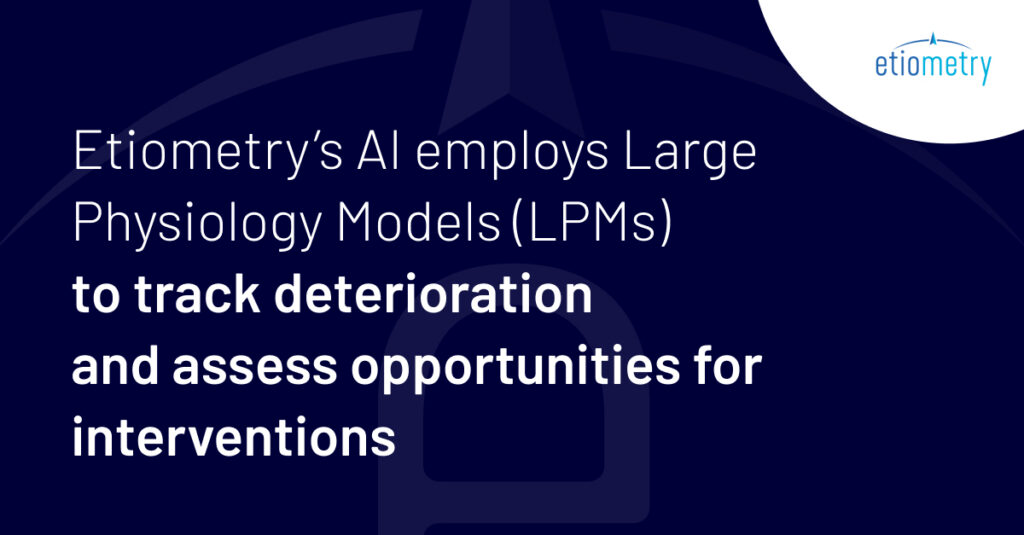Etiometry Reaches 10 Million Hours of Patient Monitoring Data to Enhance ICU Patient Care
News and Press Releases
Aggregating Patient Data to Provide More Informed Insights into Patient Risks
BOSTON, January 25, 2016—Etiometry, a pioneering leader in next-generation patient monitoring, has recorded over 10 million hours of patient monitoring data. This is allowing hospitals to gain unprecedented insights into their patients and care strategies and allowing Etiometry to continue refining our Risk Analytics Algorithms and expanding our algorithms.
T3 Visualization & Data Aggregation is Etiometry’s FDA-cleared software visualization application to collect, store, and visualize ICU data in near-real time. It relies on innovative technologies to unobtrusively collect and intuitively display data from diverse medical devices and laboratory systems. T3 is deployed in hospital ICUs throughout North America and Europe to provide information that emphasize patient disease processes both within the ICU and from remote computers and mobile platforms.
According to Etiometry COO Evan Butler, “The T3 Visualization & Data Aggregation software can connect to most ICU data sources to provide caregivers with near real-time information. The massive amount of data we collect is anonymized and provides us with unprecedented volumes of ICU big data. We use this information to develop and continuously improve Risk Analytics Algorithms that provide caregivers with the most up-to-date and sophisticated algorithms to help them improve patient care.”
The first in Etiometry’s family of Risk Analytics Algorithms to already receive FDA-clearance is the IDO2 Index Powered by Risk Analytics for Neonates. It continuously assesses patient-specific risk of inadequate delivery of oxygen (IDO2) by computing an IDO2 Index that reflects the likelihood that a patient is experiencing inadequate oxygen delivery at any given time based on their individual high-frequency data and history. Additional Algorithms Powered by Risk Analytics are currently in development.
“The high-volume, real-world data we capture is allowing Etiometry to uniquely aggregate patient data and rapidly create high-performance algorithms to provide a better understanding of a patient’s continuously evolving physiologic risks,” says Butler. “The collection of such a large amount of data allows us to—unlike physical medical devices—continuously and quickly improve our risk analytics algorithms on a timescale measured in months, rather than years.”About Etiometry
Etiometry Inc. is the leader in clinical decision-support software for the intensive care environment. Our technologies provide valuable clinical insight and analysis to support early recognition of subtle changes in patient condition to avoid complications and speed recovery. Etiometry is committed to improving patient outcomes, increasing clinical efficiency, and lowering costs of care through the more effective use of all available data.
For more information, visit www.etiometry.com.


